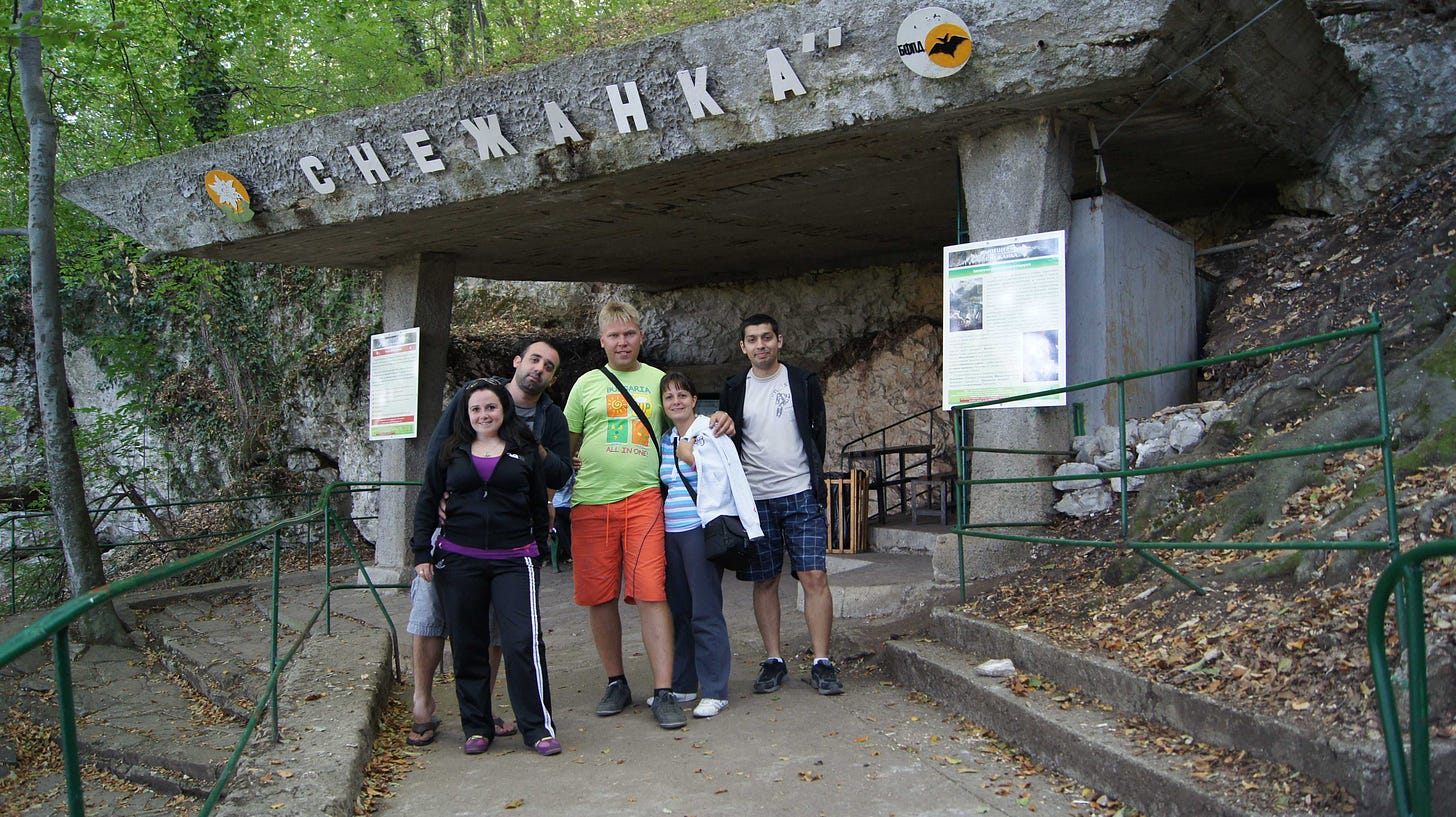The Silent Stepping Stone to Promotion: It's Not What You Think!
Technical prowess is crucial, but can it outshine the power of collaboration?
Would you rather be the best in your team and not liked, or be average and a friend with everyone?
I started working at my second workplace when my colleagues asked this question.
"That's easy. I want to be the best! I don't need to be friends with you. All we need to push a project is a bunch of stellar engineers." promotion
I mean, the ticket to career elevation is mastering your technical skills, right?
I had never been so wrong in my entire life!
Suppose you are like me back then. You are looking for a way to get to higher levels. You want more responsibilities, a respectable title, and a much higher salary. As a tech-savvy data person, you read books on infrastructure and take courses on modelling. You believe that becoming as independent as possible will get you promoted.
It turns out you can only become an experienced professional after a while. The real game-changer is often the underappreciated and overlooked facet of teamwork.
In essence:
It's not enough to be the best on your team; you need to be the best for your team.
Today, I'll explain why leading a team needs more than technical expertise. You'll learn why soft skills are even more important than hard ones. Hopefully, you'll learn what you haven’t been doing that caused you to miss a promotion.
First, let's discuss why technical expertise is not enough:
Technical Excellence Isn't the End-All-Be-All
You're a tech ninja; no one's disputing that. Your colleagues marvel at your expertise.
But have you thought technical finesse might not get you to the corner office?
Let's consider some hard facts:
A study found that 75% of long-term job success depends on people skills. Only 25% hinges on technical know-how.
Did you catch that?
Three-quarters of what propels you forward in your career isn't your technical brilliance. It's how well you play with others. Don't get me wrong: your technical skills aren't irrelevant. They're your bread and butter. But they aren't the jam that sweetens the deal.
To climb the career ladder, it's imperative to excel not only at your craft. You also need to excel at being a human. Because the world needs more than yet another dbt tech ninja. It needs problem solvers who bring people together.
Your ability to work with people is crucial for your career. I can't think how often I skipped my part of a project by bringing different groups. All I had to do was to organise them and ask them to work together. This means I spent minutes on a project instead of weeks.
Now, you might think being a tech wizard doesn't oppose what I just told you.
But guess what:
You Could Be the Stumbling Block
Alright, let's shift gears a bit and get real.
What if I told you that, in the grand tapestry of a project, you could be more of a snag than a highlight?
That's right. You might be a hurdle even with your Snowflake certificates and Python magic. Mission-critical projects can slow down because of you.
Think about it:
Complex, high-stakes projects are like a multi-stage rocket. They demand an intricate interplay of different expertise and backgrounds. A rocket needs each stage to function in harmony to reach orbit. And, just like that, projects need a united team to achieve critical objectives.
If one part fails, that rocket isn't going anywhere. Your teamwork and communication might be holding your team back from reaching the heights it's meant for.
And trust me, that's a label you don't want stuck to your back as you climb the corporate ladder. No level of technical skill can compensate for an inability to collaborate. In fact, it might cost you your job. At the end of the day, communication is one of the main pillars of DataOps.
And it doesn't stop there. You need to do more than work well with your team. You will only advance in your career if you give credit when credit is due.
Let's dive a bit deeper into that.
All for One, One for Themselves
I get it. You've worked hard, soaking in all the applause is tempting.
But let me tell you a little secret. Teamwork isn't just about your work; it's also about the credit you give.
Generosity in giving credit doesn't diminish your light; it amplifies it. When you elevate your team, you elevate yourself. No one wants to work with a glory hog. Everyone wants to work with someone who's not only proficient but also very generous.
Success is best when it's shared.
— Howard Schultz
This isn't the next corporate feel-good shit slogan from the mind behind Starbucks. It's a fundamental truth. Being generous with credit fosters a positive team culture that catalyses collaborative efforts. Because, in the end, leaders aren't just those who can do great things. They're those who can inspire greatness in others.
Now, our output as data practitioners is not pipelines, models and dashboards. I mean, they are, but they are a proxy for something bigger.
Teamwork: The Impact Multiplier
Let's drive this home with a reality that often escapes us:
Our primary job isn't to churn out elegant code or immaculate data models. Nope, it's to generate a tangible business impact.
Talent wins games, but teamwork and intelligence win championships.
— Michael Jordan
You see, it's all about the bigger picture. While your code might be a masterpiece, it's just a single brushstroke on a larger canvas — a canvas of quantifiable business impact that drives companies forward. When you focus only on your part, you might miss the team's collective goals.
At the end of the day, you can only do so much if you work alone. You won't be able to meet every stakeholder alone. You won't understand their struggles. You wouldn't provide them with impactful insights. At least not for long.
So, what's the secret sauce to creating this business impact?
Effective teamwork. It's the catalyst that takes your contributions and multiplies its impact tenfold.
And what happens when the team wins?
You win!
You become the kind of professional everyone — yes, including your boss — wants on their team. That's the ticket to not just a good review but a career trajectory that shoots upwards.
My Story
Let's revisit the story in the beginning.
So, I told the team I didn't need to be friends with them. I wasn't sharing any personal information with them. They were just the people I was working with. But I worked with them every day in the same small room.
As time rolled by, my eyes opened to the power of camaraderie and collaboration. Those same teammates, whom I didn't think I needed to get along with, became my greatest allies. Mladen, Yanko and I transformed into a unit where no task was too daunting. We elevated each other. Together, we became the leads everybody wanted to work with.

I learned that the synergy of a cohesive team could tackle challenges that even the most brilliant individual could not. That, of course, did not happen in a day. I occasionally travelled back to when I got asked the individual vs team question. I crept from one side of the spectrum to a more balanced opinion. Now, I'm in a position where I appreciate soft much more than hard skills.
Don't get me wrong, I'm not saying you should be best buddies with your team. But I truly believe nothing can beat teamwork.
In fact, as I sit across the interview table these days, my focus has shifted. I'm less wowed by technical prowess. I seek adaptability, a collaborative spirit, and a drive for collective improvement.
The point is this:
The more skilled your team is in working together, the more unstoppable you become as an individual.
And hey, that's not just some feel-good mantra. It's the cornerstone of my professional journey and can be yours, too.
Anyway, enough sentimentality. Let's take a moment to zoom out and reflect on our journey through this article.
Summing it Up
Have you ever felt disappointed when a newer coworker got the leadership role you wanted?
But here's a perspective shift for you: it's not always about the technical know-how. Believe it or not, a study from 1918 (Yes, that long ago!) highlighted that. Mann discovered that about 80% of success is attributed to soft skills, with a mere 20% owing to hard skills.
In data and tech, expertise in tools like Snowflake, Looker, and dbt is impressive. But your soft skills, especially teamwork, are the lynchpin in diverse settings. Team meetings, collaborative projects, and brainstorming sessions are more than checkboxes on your agenda. They're the crucible that forge real career growth.
Your Turn
So, where do you go from here?
Commit to being that indispensable team player your squad never knew they needed. Refine those technical skills, by all means. But cultivate the art of collaboration, of being the teammate everyone can rely on.
Remember, it's not about shining the brightest. It's about lighting up the path for everyone.
Did you enjoy that piece? Follow me on LinkedIn for daily updates.





